Can Trump reverse Biden's offshore oil drilling ban?
In an executive order issued on Monday, President Donald Trump revoked the ban placed by former Democratic president Joe Biden against new offshore oil-and-gas development along most of America's coasts. Trump will face legal challenges regarding his authority. What did BIDEN and Trump do? Biden used his authority, granted by the Outer Continental Shelf Lands Act of 1970, to stop oil and gas drilling in federal waters along the East and Western coasts of the United States as well as the eastern Gulf of Mexico. He also halted the drilling of portions of the northern Bering sea of Alaska. Biden said that the move was in line with his efforts to fight climate change.
Russia: Arctic Offshore Oil Feasible at $130/bbl
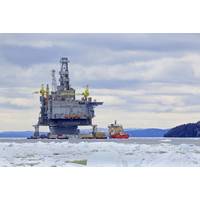
The head of Russia's Rosnedra subsoil agency said on Tuesday that the development of the Pobeda (Victory) offshore Arctic oilfield in the Kara Sea is feasible only at oil prices of $130 to $140 per barrel, Interfax news agency reported.Rosneft, the world's top listed oil firm by output, drilled a first exploration well in 2014 in the Kara Sea, which is part of the Arctic Ocean, with a rig provided by U.S. partner Exxon Mobil Corp.Exxon Mobil has pulled out from the project due to U.S. sanctions imposed over Moscow's annexation of Ukraine's Crimea Peninsula in 2014 and its support for pro-Russian armed separatists in eastern Ukraine.
Russia, Norway Ink Seismic Pact for Barents Sea
The Norwegian Petroleum Directorate (NPD) and Russian petroleum authorities (Federal Subsoil Resources Management Agency, Rosnedra) have entered into an agreement to exchange seismic data from the areas around the demarcation line in the Barents Sea.“This agreement is extremely important, it allows us to achieve a better understanding of the regional geological conditions on both sides of the demarcation line and, not least, of geological structures that span across the line,” says Stig-Morten Knutsen, the NPD's assistant director within Exploration.Rosnedra initiated the data exchange about two years ago.
Russia's First Sea-borne Nuclear Power Plant Arrives in Arctic
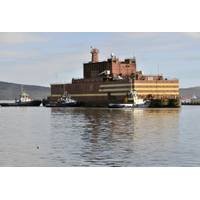
Russia's first-floating nuclear power plant arrived in the Arctic port of Murmansk over the weekend in preparation for its maiden mission, providing electricity to an isolated Russian town across the Bering Strait from Alaska.The state company behind the plant, called the "Akademik Lomonosov", says it could pioneer a new power source for remote regions of the planet, but green campaigners have expressed concern about the risk of nuclear accidents. Greenpeace has called it the "nuclear Titanic".Russian state nuclear company Rosatom, which developed the floating power plant…
Threat from wandering greenhouse gas
On the seafloor of the shallow coastal regions north of Siberia, microorganisms produce methane when they break down plant remains. If this greenhouse gas finds its way into the water, it can also become trapped in the sea ice that forms in these coastal waters. As a result, the gas can be transported thousands of kilometres across the Arctic Ocean and released in a completely different region months later. This phenomenon is the subject of an article by researchers from the Alfred Wegener Institute, published in the current issue of the online journal Scientific Reports.
Eni Begins Drilling Oil Well in Alaska's Beaufort Sea
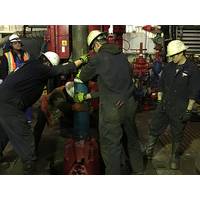
Italian oil producer Eni this week began drilling a new well in U.S. waters off the north coast of Alaska, becoming the first company to do so since 2015, federal regulators said on Wednesday. The oil and gas firm is working from an artificial island in the Beaufort Sea about three miles off Oliktok Point in the Arctic Ocean. The well is expected to run more than 6 miles (10 km) long. The project could result in 20,000 barrels a day of oil production, according to regulator U.S. Bureau of Safety and Environmental Enforcement (BSEE), which said it sent employees to the site to ensure compliance with federal regulations and safety standards.
US Senate Pushes Alaska Wildlife Refuge, But Drillers Look Elsewhere
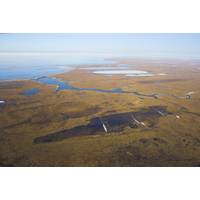
Even as the U.S. Senate moves to allow oil drilling in Alaska's Arctic National Wildlife Refuge (ANWR), the real action is 150 miles (241 km) west, where industry proponents hope a coming sale of 10 million acres of land will revitalize the state's sagging crude production. The Trump administration, through the U.S. Bureau of Land Management, will auction off 10 million acres on Wednesday in the National Petroleum Reserve (NPR-A), a hotbed of oil exploration and development in the western part of Alaska's North Slope. The planned sale has encouraged the oil industry while angering environmental groups.
Russia: Second LNG Plant in Arctic
Russia on Tuesday started production at its second liquefied natural gas plant, Yamal LNG, with the aim of shipping the first cargo on Dec. 8 from the remote Arctic port of Sabetta. Russia's No.2 gas producer Novatek owns a 50.1 percent stake in Yamal LNG. France's Total and China National Petroleum Corp each control 20 percent, while China's Silk Road Fund owns 9.9 percent. Russia, seeking to produce more than 70 million tonnes of LNG per year in its remote Arctic regions, for now has just one operational LNG facility, run by Gazprom and co-owned with Shell on the Pacific island of Sakhalin.
Output Spike Brightens North Sea's Twilight Years
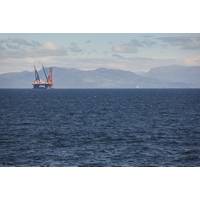
New oil projects over the next two years in the North Sea will have combined capacity to produce 1.2 million barrels per day (bpd), offsetting a slide in output from the oldest deepwater basin that produces the world's benchmark crude. The projects stretch from the West Shetlands to the icy fringes of the Arctic Ocean, Reuters research shows. North Sea crude output was 2.54 million bpd in 2016 and is forecast to reach 2.59 million bpd in 2017 and 2.63 million bpd in 2018, based on output figures for the three main producers Norway, Britain and Denmark from consultants Rystad Energy.
Obama's Arctic Ban and Aftermath
US President Barack Obama has permanently banned offshore oil and gas drilling in the "vast majority" of US-owned northern waters. Vowing that his successor won’t be able to reverse his actions, President Obama on Tuesday used executive authority to permanently ban new offshore drilling in federally owned waters off the Atlantic coast and in the Arctic Ocean. The majority of the Chukchi and Beaufort Seas and the entirety of the Canadian Arctic are now off limits for future offshore oil and gas leasing. According to ADN, President Obama's Dec. Much of the policy and planning the U.S. and Alaska have been working toward in the Arctic was unwoven with this action.
NOIA Decries Obama Withdrawal of Offshore Areas

“President Obama’s short sighted, unilateral withdrawal of Atlantic and Arctic Ocean areas from future oil and gas leasing not only risks the long-term energy security and energy leadership position of the United States, it violates the letter and spirit of the law. Such an expansive withdrawal, particularly when argued as being ’permanent’, is clearly inconsistent with the Outer Continental Shelf Land Act’s steadfast declaration that ‘... “Furthermore, today’s decision puts the United States at a competitive disadvantage and sacrifices thousands of potential jobs and billions of dollars in government revenue.
Hundreds of Scientists Urge Obama to Halt Arctic Oil Drilling
Nearly 400 scientists from more than a dozen countries signed a letter urging U.S. President Barack Obama to take the Arctic Ocean out of the next federal offshore lease sale plan, thus ruling out the possibility of offshore drilling in the Arctic in the near future. Scientists from 13 countries have signed the letter saying global warming will be accelerated by burning oil found in the Arctic Ocean. “No new oil and gas leasing or exploration should be allowed in the Chukchi and Beaufort seas in the foreseeable future,” the scientists said. The…
House Bill Introduced to Block Arctic Drilling

Rep. U.S. Congressman Jared Huffman (Dem.-Calif.) introduced a bill Monday called the Stop Arctic Ocean Drilling Act of 2015, which would prohibit new or renewed oil and gas leasing in the Arctic Ocean Planning Areas of the Outer Continental Shelf. The Senate version of the Stop Arctic Ocean Drilling Act of 2015 was introduced by Sen. Jeff Merkley (Dem.-Ore.) on July 16, 2015. Following closely on the heels of Royal Dutch Shell’s decision to end drilling operations in the Arctic Ocean “for the foreseeable future,” Huffman’s bill aims to effectively bring a permanent end to drilling operations in the area.
Canada Arctic Drilling Rules May Stifle Development
Canada's offshore Arctic drilling rules could "stifle" development since they do not provide incentives for companies to proceed with production after discovering oil, the government was told in a newly-released internal briefing note. The advice was prepared for the government's point man on the issue, Aboriginal Affairs and Northern Development Minister Bernard Valcourt, before Imperial Oil Ltd lobbied him privately in June, seeking concessions on existing legislation. The right-leaning Conservative government said in July it would review the legislation, known as the Canada Petroleum Resources Act.
Obama Heads to Alaska, Where Drilling Decision Looms Large
President Barack Obama on Saturday defended his decision to allow Royal Dutch Shell to drill for oil in the Arctic Ocean under what he said were rigorous standards, fending off criticism by environmental groups. His message comes on the eve of a three-day tour of Alaska aimed at drawing attention to powerful images of melting glaciers and eroding coastlines as a "wakeup call" to Americans in the Lower 48 states about the urgent need to address climate change. The trip is part of a broad campaign to seal an international deal later this year to curb carbon emissions, something the White House hopes will cap Obama's legacy on climate during his time in office.
Arctic Drilling 'Not Worth the Risk' -Hillary Clinton

U.S. Democratic presidential candidate Hillary Clinton said in a Twitter post on Tuesday that drilling for oil and gas in the Arctic Ocean was "not worth the risk." "The Arctic is a unique treasure," Clinton said. The Obama administration on Monday gave Royal Dutch Shell final approval to resume drilling in the environmentally fragile ocean for the first time since 2012. (Reporting by Emily Stephenson and Amanda Becker)
US Senator Introduces Bill to Stop Arctic Drilling

A piece of legislation aiming to stop offshore Arctic drilling was introduced last week by Oregon Senator Jeff Merkley. The legislation, entitled Stop Arctic Ocean Drilling Act of 2015, would prevent new or renewed leases for the exploration, development or production of oil, natural gas or any other mineral in the Arctic planning area. "A spill in the Arctic would be an environmental catastrophe of extraordinary proportions – and such a spill is inevitable if drilling proceeds," Merkley said. "The ecosystem in the Arctic is too fragile and the ability to respond to a spill in this region is nonexistent. Drilling in the Arctic Ocean is the height of irresponsibility.
'Kayaktivists' Take Shell Arctic Protest Nationwide
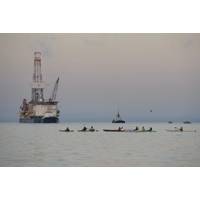
Environmental activists in the U.S. prepare to take their so-called “kayaktivism” nationwide as they urge lawmakers to revoke oil and gas exploration leases in the Chukchi Sea, says environmental group Friends of the Earth. The group’s “Shell No” day on July 18 will gather activists in 13 states and in Washington D.C. as they bring their message to President Obama’s doorstep by staging an Arctic marine scene in Lafayette Park to protest Shell and other companies drilling in the Arctic Ocean. Following on the action of “kayaktivists” who floated in Seattle earlier this year to protest Shell’s Polar Pioneer rig…
Shell Steps Closer to Arctic Drilling
The U.S. Fish and Wildlife Service authorized the nonlethal, incidental, and unintentional take of small numbers of polar bears and Pacific walrus that result from Shell’s exploratory drilling activities in the Chukchi Sea. The agency gave authorization despite finding information gaps regarding walrus and polar bear behavior in offshore environments, the immediate and long-term responses of these animals to drilling operations, and the subsistence hunting activities of several Native villages. With this authorization, Shell only requires one more drilling permit from the Bureau of Safety and Environmental Enforcement to begin drilling in the Chukchi Sea in less than a month.
Imperial Oil/Exxon/BP Gr defer drilling in Canada's Arctic
Imperial Oil Ltd said on Friday it and partners Exxon Mobil Corp and BP Plc need more time before they can drill an exploratory well in Canadian Arctic waters and are seeking an extension to their exploration license in the region. Pius Rolheiser, a spokesman for Imperial, said the license for the group's exploration parcel in the Beaufort Sea, a section of the Arctic Ocean, expires in 2020. He said the group is asking the Canadian government for a seven-year extension so it can complete the requirements of the regulatory process and have adequate time to make a decision on how, or when, it will drill a well in the region.